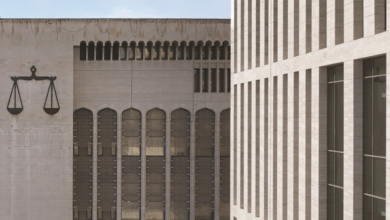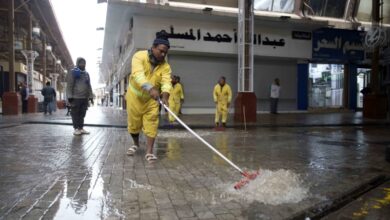Traffic violators in Kuwait to face community service instead of jail

First Deputy Prime Minister and Minister of Interior, Sheikh Fahad Al-Yousef, has introduced major reforms to the country’s traffic law — a system of alternative penalties that can replace prison sentences for traffic-related crimes.
The new decision, published in the official gazette Kuwait Alyawm, amends Ministerial Resolution No. 81 of 1976 and sets out how judges can impose punishments that focus on community service, rehabilitation, and compensation instead of jail time.
The newly added Article (212 bis) gives judges the authority to order offenders to perform public service work, attend awareness and rehabilitation programs, or repair and compensate for damages caused by their violations. These alternatives aim to correct behavior, raise awareness, and reintegrate offenders into society in a constructive way, reports Al-Rai daily.
The community service will include a wide range of activities across 16 government institutions. Examples include helping in traffic awareness campaigns with the Ministry of Interior, assisting in health awareness drives at the Ministry of Health, supporting school programs under the Ministry of Education, or working in coastal clean-ups with the Environment Public Authority.
Other tasks range from tree planting and waste removal to helping organize libraries, mosques, and vocational training workshops.
In total, 46 types of community service penalties have been identified, with the tasks assigned depending on the severity of the offense and the circumstances of the violator. The General Traffic Department will coordinate with relevant agencies to assign suitable duties.
Rehabilitation and training will also form a key part of the new penalties. Offenders may be required to attend educational lectures, participate in workshops, or undergo psychological and behavioral programs designed to improve road safety awareness and address irresponsible driving habits.
The decision also emphasizes restorative justice, allowing offenders to repair damage caused by their actions. This could mean restoring property to its original state, carrying out necessary repairs, or providing financial compensation if repairs are not possible. The process will be supervised jointly by the General Traffic Department and the affected government body.
The General Traffic Department will take the lead in organizing rehabilitation programs, working alongside government institutions, private entities, and public benefit associations. These efforts aim to make penalties more effective by turning violations into opportunities for education, reform, and service.
If an offender fails to comply with their alternative penalty, the General Traffic Department will report the case to the Traffic Enforcement Department, which will then refer it to the courts. In such cases, the violator may be required to serve the original prison sentence.
Authorities have stressed that this reform reflects Kuwait’s determination to modernize its justice system, improve road safety, and reduce overcrowding in prisons by focusing on rehabilitation instead of purely punitive measures.
Follow The Times Kuwait on X, Instagram and Facebook for the latest news updates




























